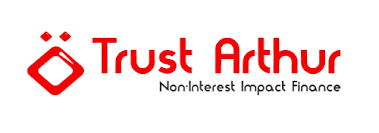Get competitive returns on your halal investment with Trust Arthur
Start Investingfinance@trustarthurgroup.com
finance@trustarthurgroup.com
Get competitive returns on your halal investment with Trust Arthur
Start Investing
As part of efforts to drive ethical non-interest banking and financing projects, TrustArthur Limited, a fund management company, was one of the sponsors of the 2023 Muslim Community of Lagos Seminar held on Saturday 6th of May 2023. The August event was graced with the presence of eminent personalities, including experts in Islamic finance, regulators, government officials, finance experts, asset management firms, notable Islamic scholars, reputable High Network Individuals, business owners, artisans, and students.
This memorable seminar was themed “Islamic Banking, Finance & Insurance: Opportunities and Challenges.” Its objective was geared to sensitize the audience about the positive potentiality of ethical financial systems towards the development of individual and corporate well-being.
At this outstanding event, the Chief Executive of TrustArthur was represented by Mr. Tunde Ajani, the Chief Financial Officer of TrustArthur. He gave a fine presentation on “Financing Project without Interest”, where he stated that financing a project without interest creates impactful and benefit-based partnerships, with minimal loss of value.
Tunde Ajani emphasized the reasons interest-based projects should be avoided. He cited Quran 2:275 (prohibition of Riba) to fortify the emphasis. He further stated that it is based on compounding interest repayment and is calculated on the unpaid balance plus unpaid interest; and that it is strictly based on the Debtors-Creditors relationship.
Speaking further, the CFO listed Murabaha, Istisna, and Ijarah as part of the noninterest contract that can be used for financing projects without interest.
In his presentation, Ajani defines Murabaha as a type of Islamic contract that is commonly used in Islamic finance where a seller agrees to sell a specific asset to a buyer at a cost-plus markup, which is known as the Murabaha price.
Highlighted below are the features of the above contracts he advised for non-interest project finance.
Features of Murabaha
Istisna’a is a contract that can provide flexibility to the customer, where payments can be made in installments linked to project completion, at delivery, or after project completion.
Istisnaá Features
A customer requests the bank to construct a specified asset at a pre-agreed price consisting of cost price plus profit margin determined by the bank, payable on a deferred payment basis. Both will sign an Istisna’ sale agreement in which the customer acts as the buyer (mustasni’) and the bank as the manufacturer (sani’).
The bank delegates the customer to appoint a contractor on his behalf to construct the asset as specified in the Istisna’ Purchase Agreement at a price determined by the bank which is payable by installment.
Both bank and contractor sign a purchase agreement based on an istisna’ contract (Istisna’ Purchase Agreement) where the bank is the mustasni’ and the contractor is sani’.
Upon completion of the asset, the contractor as sani’ in the IPA will deliver the completed asset to the bank as mustasni’ and the bank, as in the ISA will deliver the asset to the customer as mustasni’ or the contractor with the authority from the bank may deliver the asset directly to the customer.
Ijarah is known as leasing. It is an Arabic word, and it means “to give something on rent”.
Ijarah Features
The client identifies and approaches the vendor or supplier of the asset that he or she needs and collects all the relevant information.
The client approaches a bank for ijarah of the asset and promises to take the asset on lease from the bank upon purchase.
The bank makes payment of a price to the vendor.
The vendor transfers ownership of the asset to the bank
The bank leases the asset and transfers possession and specific right of use to the client.
The client pays ijarah rentals over future (known) period(s).
The asset reverts to the bank if it is an operating lease or is transferred to the client if it is a financing lease.
Leave A Comment